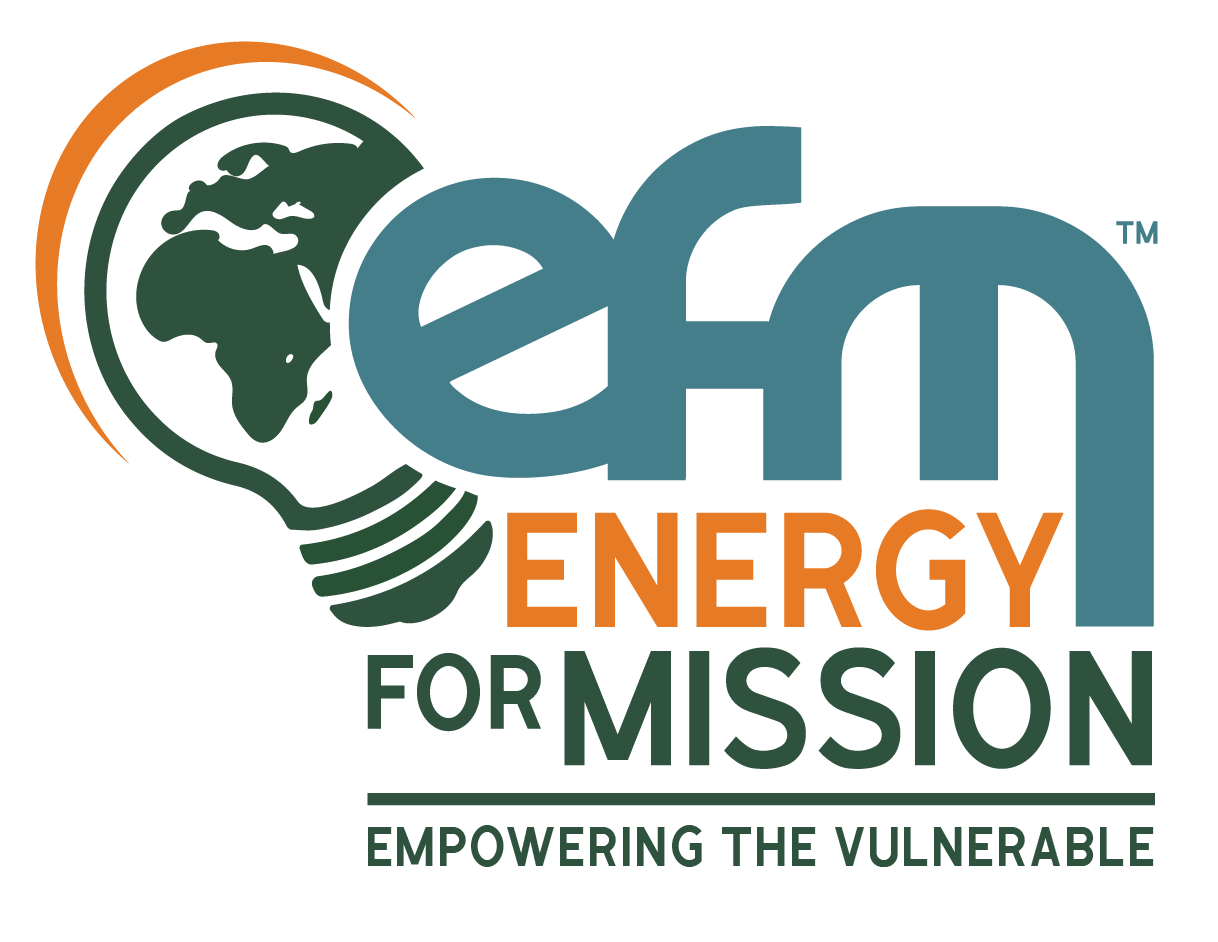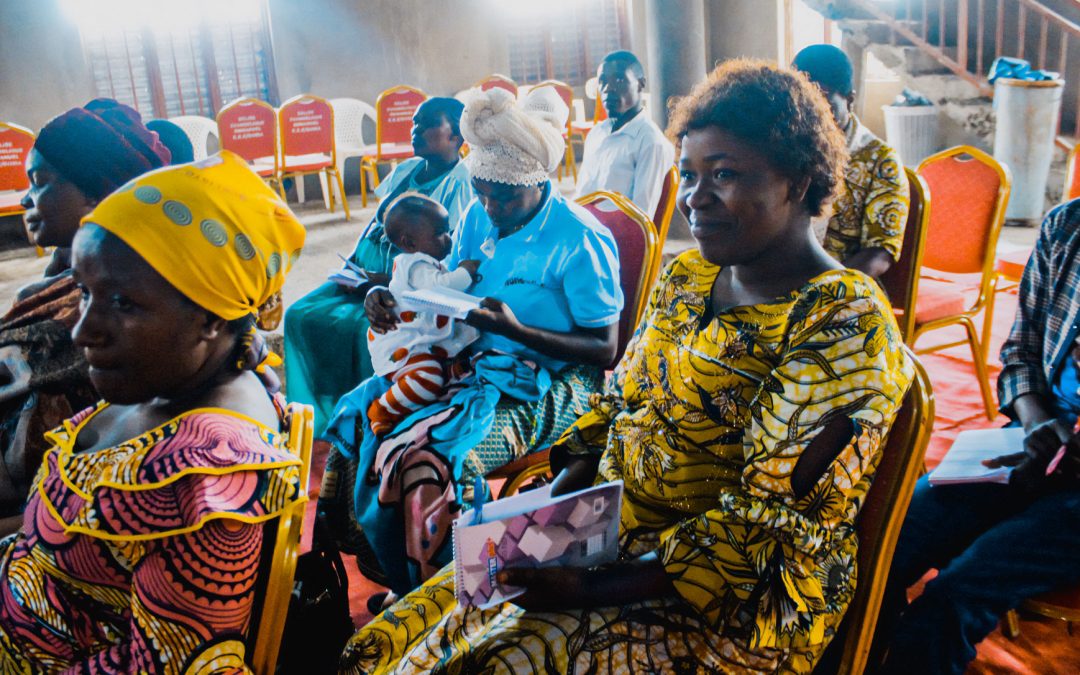JOINING FOR PEACE
When Marcel Serubungo, EFM’s Country Director in the Democratic Republic of the Congo, entered Mugunga, he knew there was a lot of work to do. This town outside the capital city of Goma has seen a lot of conflict recently, and there is a significant need for harmony to keep the community strong. Through a three-day Peace-Building Workshop, Marcel and his team, trained in peace and reconciliation ministry, learned about the tribal conflict and disputes over land ownership that have troubled the town. Violent conflict from armed rebel groups in the region has pushed many internally displaced people into places like Mugunga, affecting people of various ethnicities, faiths, and social positions. Recognizing the need, Marcel reached out to a variety of local leaders to put together a group of trainees for a Peace-Building Workshop.
EFM is committed to advancing peace in the DRC, and this requires bringing together people who don’t always cooperate with one another. A group of 30 individuals – Christian pastors, Muslim imams, traditional leaders, women and youth leaders, and government authorities – assembled in Mugunga in early April. Marcel vetted each participant to ensure they had good standing within the community, strong communication skills, and a demonstrated desire to bring peace.
WORKING WITH LOCAL LEADERSHIP
Before teaching conflict resolution skills, Marcel asked participants to describe attempts they’ve made to resolve conflict in their communities. What strategies have worked? What goals have they set and outcomes have they observed in past mediation efforts? After discussion, Marcel introduced the three pillars of conflict resolution: negotiation, mediation, and reconciliation. One of the major takeaways Marcel wanted them to see is that it’s very important that all involved parties decide on the resolution they will adopt. Sustainable resolution involves the free and equal participation of all members to meet one another’s needs.
Workshop participants practiced working through conflict resolution scenarios using this model. One scenario involved adjudicating a dispute over the custody of children caught up in a marital separation. In another, the Community Peace Committee (CPC) had to resolve a conflict between farmers and neighboring cattle keepers. (Cattle keepers sometimes allow their herds to eat crops on nearby farmland, provoking outrage and retaliation.) Both resolutions involved listening and compromise, restoring what was lost, and signing an agreement. The CPC planned to follow up with the reunited couple and the peace-abiding neighbors to ensure follow through.
Conflict over land is a significant problem in the eastern DRC. There is conflict among children over land inherited from their parents, farmers stealing neighbors’ land to increase their yields, and people selling land they falsely claim to own. These conflicts are especially difficult when internally displaced people – those fleeing conflict in neighboring regions – are the victims. They sometimes have their original lands stolen, or are misled to buy land that is not actually for sale. EFM made sure to include faith leaders working among Internally Displaced People (IDP) camps.
Marcel observed that all of them were eager to learn and take these skills back to their communities. Women leaders in particular expressed excitement at the opportunity to receive training. “The cultural tendency is that women cannot attend a conflict resolution session,” Marcel says. “Conflict resolution is usually considered men’s business.” Joyce Boroto Zawadi, a young woman from the Pentecostal church in Mugunga, expressed the thoughts of many women there: “We are so thankful to EFM-Tuungane because they gave us the opportunity to bring our contribution to building peace in our community. We didn’t have this opportunity due to cultural considerations, and yet we are able to help reconcile opponents as mothers of the community.” Because of this interest, Marcel plans to return to Mugunga in the near future to provide more advanced training.
BRINGING LASTING RECONCILIATION
EFM takes a long-term approach to conflict resolution. We want to build peace “infrastructures”, not only remedy immediate conflict. Trainees will help to form Community Peace Committees (CPCs) that will allow them to apply their training to facilitate reconciliation long after the workshops have finished. While our priority is to facilitate peace among churches in the DRC, we recognize that churches must build bridges with the wider community if we want to see peace in the region. CPCs strengthen this relationship by serving as a mechanism for whole communities to resolve local conflicts before they escalate into broader violence.
Since their beginning, the CPCs have resolved many previously irreconcilable conflicts, and government authorities sometimes use them when other methods are unsuccessful. Marcel looks forward to a day when CPCs can resolve local conflicts throughout eastern Congo. Jeremie Bahati, who participated in April’s Mugunga workshop, captured how the churches and CPCs are working together. “We are so glad that there are pastors and other church leaders in the CPCs,” he said. “These are trusted people in the community, and they are there permanently…. At the same time, the presence of the church in the CPCs is transformational….” By working with existing leadership structures, Marcel and his team of peace advocates are bringing lasting change.
Your generosity will enable us to bring more peace and stability to the eastern DRC. Will you help Marcel and his team equip local leaders to be agents of reconciliation by financially supporting a Peace-Building Workshop?


Recent Comments